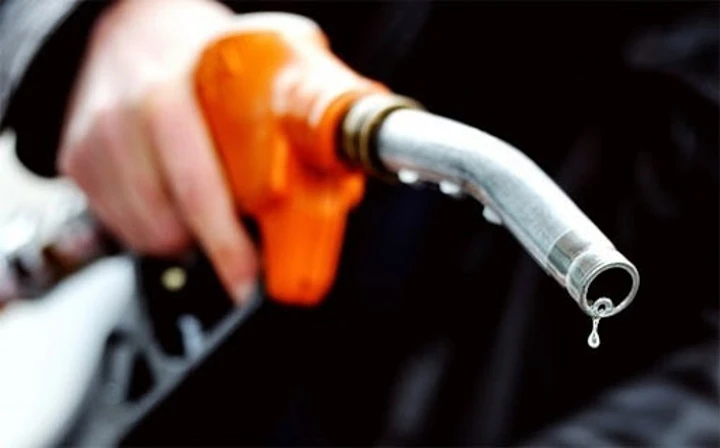


Production sustainability - The concept of "Our predecessors, ourselves".
1. The concept of sustainable production.
To achieve sustainable development, we need to change every stage in the supply chain, from production to product completion and distribution. Hence, the concept of sustainable production emerged.
Sustainable production, also known as green production or environmentally friendly production, is garnering significant attention from factories worldwide. According to the US Environmental Protection Agency, sustainable production is understood as creating products that minimize negative environmental impacts, conserve energy and natural resources. These factors aim to enhance the quality and safety of workers, communities, and the products themselves.
In recent years, natural disasters such as floods, storms, tornadoes, earthquakes, etc., are increasing due to serious climate change and the rise of pollutants being released into the environment. All of these factors exert immense pressure on the production process, urging businesses to accelerate the operation of green factories.
Sustainable production includes:
Not causing harm to the surrounding environment.
Reducing waste and emissions released into the environment.
Cutting down on the waste of raw materials and other resources.
Decreasing the consumption of energy, water, and limited energy sources.
Enhancing the safety of workers and residents in the surrounding areas of the factories.
2. Benefits of sustainable production model:
Reducing resources and costs for production:
Lower production costs and maximizing profit margins are ideal for most businesses. Along with the sustainable production model, equipment and methods that help efficiently use resources will be integrated into the production process, improving productivity and promoting the rational use of resources, especially non-renewable energy sources. Aiming for sustainability is a noble goal, benefiting both the environment and businesses.Promoting innovation:
To obtain modern equipment and optimal production processes, humans need to replace the old systems they are using. We must constantly innovate, change processes to align with the goal. This may incur initial costs, but the long-term benefits are valuable and effective. Sustainability has become part of innovation, with creative ideas always aiming for long-term sustainability. This creates conditions for increasingly refined processes, cost savings in operations, and greening our planet.Increasing production output:
Currently, the number of consumers shifting to sustainable products is increasing significantly. More and more people are concerned about the environment, desiring to minimize negative impacts on the atmosphere, and sustainable products are also safer to use.Additionally, a company's social responsibility to the community also has a very positive impact on its reputation. It helps position the brand, making the business stand out from competitors in the same field, building a competitive advantage for the business in domestic and international markets.
Higher recruitment and retention rates:
A significant portion of the population is conscious of protecting green spaces, always interested in programs and activities organized and implemented by companies. The responsibility towards the community that a company provides helps it retain its employees.Cost reduction for environmental regulations:
To encourage businesses to pay more attention to environmental issues, improve factories towards "greening," the state enacts laws related to environmental protection. If a business violates these laws, they will be sanctioned, fined in the form of taxes. When businesses comply with regulations, improve their factories, and apply modern production methods, they can save a lot of money in taxes for this issue.
3. Achievements of businesses achieved through the application of sustainable production model.
A typical example is the textile and garment enterprises in Vietnam that have applied the sustainable production model very well. Understanding the global trend moving towards long-term sustainable values, companies in Long An province are gradually shifting towards greening their processes to meet the strict requirements of the international market.
Viet Thang Jean Company Limited in Ho Chi Minh City has received more orders for export to the European market since switching to a sustainable production model. Mr. Pham Van Viet, Chairman of the company's Board of Directors, stated: "Traditional textile products exported to the European market are priced at about 11 USD/item, while products using organic materials, or recycled materials, meeting the criteria for sustainable production, can be sold for 23 USD/item."
Currently, the European market sets the strictest green production standards, from raw materials, recycling capabilities to the social benefits according to the Ecotech standards that this market sets. These are mandatory conditions for goods to be imported into this large market. Vietnam is a developing country, so Europe provides conditions for Vietnamese enterprises to change according to the committed roadmap. Any business that does not change its processes, its products will be labeled with a red tag and not allowed to be imported into the European market. Currently, Viet Thang Jean's Ecotech standard products account for 35% of the company's production structure. This product line is very well received by EU consumers as it meets the stringent green standards of this market.
Trung Quy Textile and Garment Company Limited in Hải Sơn Industrial Park, Long An, exported two containers of organic fiber fabrics to the United States in March 2023. Some partners are very interested in organic and recycled source fabrics, so they order these items in large quantities. Mr. Tran Van Quy, the company's General Director, said: "With this signal, we can grow by 35-40% this year. The advantage is that the factory is invested in a comprehensive, advanced technology from Germany, so it can convert 100% of its capacity, producing about 300 tons of organic fabric per month according to the brand's requirements."
Thanks to changing the production model, innovating processes towards sustainability in the future, businesses have achieved admirable accomplishments, bringing in substantial revenue and profits. Pioneering companies in innovating processes, building green factories like this will motivate other businesses to change, creating a green wave for production, aiming for sustainable development in the future.
Author: InterLOG synthesis and editing


